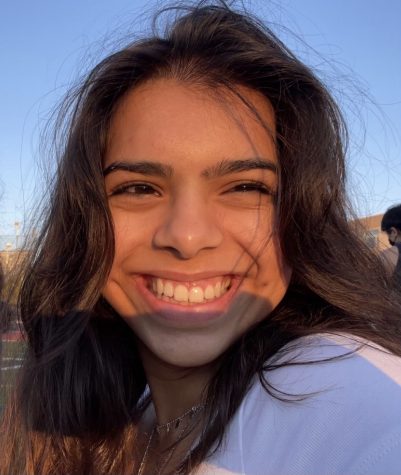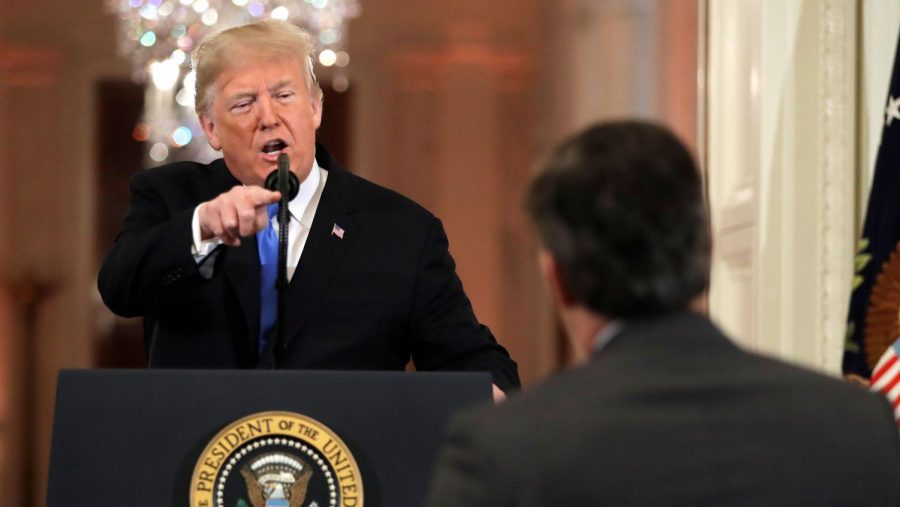Opinion | Government vs. the Media
The media has been an integral part of society since the first newspaper came hot off the press. It serves an important purpose in spreading awareness of important issues that can greatly affect a large population. Without news media, the average citizen would not be informed of the issues and conflicts that directly affect them as an individual within a nation.
Politics is one of the central topics that media covers. With this reporting also comes criticism.
Criticizing and scrutinizing politics has always been a critical role that the news media fills. We’ve seen this recently with the murder of Saudi journalist Jamal Khashoggi by that kingdom’s Crown Prince. With this conflict, the struggle between politics and media has become more prominent.
Khashoggi was an influential and well known journalist who covered major stories for many Saudi news organizations for many years; due to this, he was also very close to the Saudi royal family. However, soon before his disappearance, Khashoggi had been critical of Crown Prince Mohammed bin Salman’s policies; fearing for his life, he exiled himself to the United States, where he wrote for the Washington Post.
Though the Crown Prince denies ordering his death, it is widely agreed upon by the intelligence community that the Saudi government ordered his murder, and so far, 18 Saudis have been arrested and 5 officials have been fired.
Why does this incident relate to the United States and media in general? Directly, these events have and will continue to influence alliances between the United States and Saudi Arabia. However, President Donald Trump says that he does not want this conflict to change military sales to Saudi Arabia, and sales of other important goods such as oil.
On a more indirect note, the incident has shed light on American politics and how the media perceives them. Especially since President Trump has been elected, the media has closely scrutinized his administration’s every policy and decision.
Some of Trump’s responses to events that have been most criticized include his ban on several Muslim-majority countries, his blaming of “both sides” after the Charlottesville’s riot, and the slow response after Hurricane Maria that devastated Puerto Rico. The media has portrayed these actions as some of the worst in American history and described President Trump’s rash and ill-advised comments as a reflection of the misconduct and failure of the his administration.
Trump’s administration is not the first to have a disagreement with the media. Both President Obama and President Franklin D. Roosevelt worked hard to control the press, using various means to that end.
The feud intensified when the Federal Communication Commission (FCC) was created to regulate broadcasters, like the radio, and FDR appointed the man who handled the radio during his campaign in 1932 to lead the FCC. These actions translated into limiting the press as anything said that was critical of the Roosevelt administration would not be broadcasted. As Henry A. Bellows, vice president of CBS Radio, said “no broadcast would be permitted over the Columbia Broadcasting System that in any way was critical of any policy of the Administration.”
The ongoing struggle between the media and the government has several consequences for the general public. Within the government, officials are now more careful about what they say and what they don’t. For example, members of the Trump administration are often reluctant to answer questions to which the answers are important for citizens to know.
This may be because of efforts to soften the political damage that Trump inflicts upon himself with his Tweets and offensive comments, or because saying anything else would be another opportunity for the media to criticize.
For the media, one of the major consequences tends to be unreliability. Thus far in his presidency, President Trump has often referred to the media as “fake news” and deemed their reporters as dishonest for saying or writing anything that may not be in support of the government. As seen in the Khashoggi investigation, allegations against the Saudi government have resulted from its deep-rooted efforts to remain in power and make decisions for the country without having to face any sort of backlash.
For the public, the disagreement between government and media causes a division. On one hand, there is the government that says that the media’s portrayal of politics is wrong and that they are supporting and citing lies as the base to support and influence one political opinion over the other. While, on the other hand, media represents the government as making imprudent decisions that do not support the interests of the nation.
There is always a need for the media in society because people need to be informed about the world around them, especially politics, since it affects their lives. As a student journalist, I think it is important to cover different opinions on politics to convey the idea that the government is not always as straightforward as it may appear. However, I think that media heavily influences political figures, opinions and decisions, which may lead to a disconnect between people and their government.
The media will never truly get too far off from covering and criticizing politics. Whether this positively or negatively impacts the country will be up to both what and who people choose to believe more — the government or the media.

Ishika joined The Harriton Banner 4 years ago, and she has loved it ever since. First as a writer, then a section editor, and now tackling executive editor....




Mandy Meiler • Feb 20, 2019 at 8:30 am
Thank you for your article. It’s a topic that could go on and on…but I try to be brief. Without a doubt, good journalism serves people by educating the public, being as truthful as it can be. It is important to support a Free Press, despite the Media Frenzy that will always be a part of the journalistic world. Leaders who dislike the press have tried to work with the press, or have tried to shut down the press. When the press gets heated up, there is usually reason for it. When I read the original DIary of Ann Frank last summer in Amsterdam with my family and children, I was reminded about how the power of the pen is everlasting. I hope you continue to write and be truthful. Sure, we should question everything we read, just like when we wonder whether our leaders are telling the truth. This is part of living in a democracy where we are allowed to question and criticize. Thank goodness for it. Have a nice snow day!